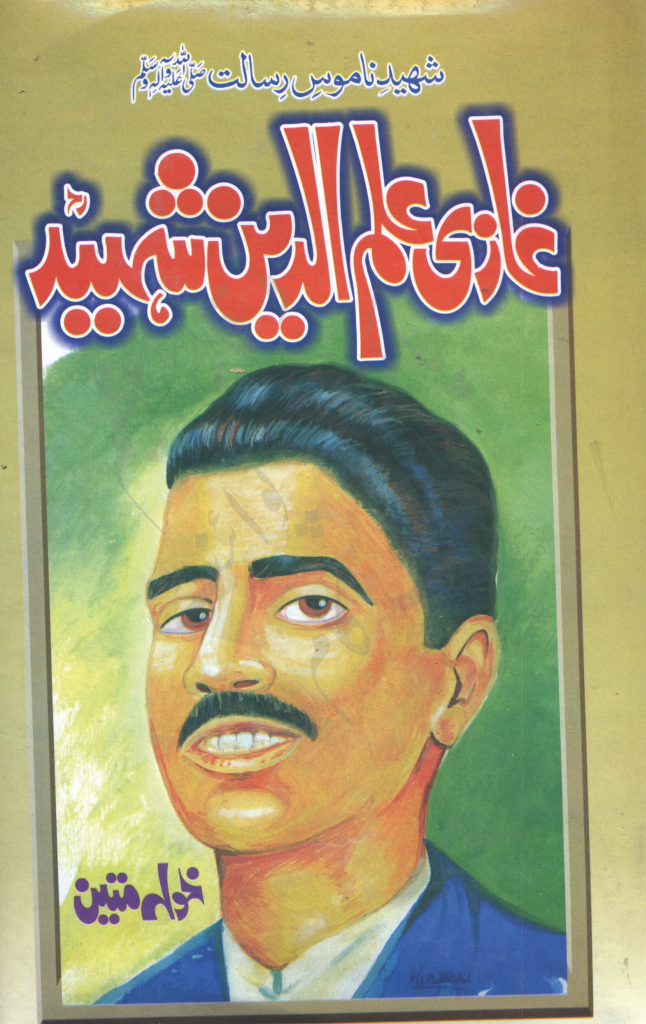It was a hot June afternoon when Asia Noreen was working in the fields, harvesting fruit in Ittan Wali, a village off the main city of Sheikhupura. Along with her were some other women of the same village. Sweating badly in the scorching heat, Asia was asked to fetch water from the well nearby. Her neighbor, another woman saw her as she drank water from the same utensil – a practice considered normal otherwise.
It wasn’t. Asia belonged to a Christian family. Cursed at angrily, she was told it was forbidden for her to drink from the same glass as Muslims – she was unclean.
Tempers ran high as did the temperature. What started as personal abuses, shifted rapidly to religious mudslinging. The incident was reported to the local Imam of mosque. Based on angry remarks of Asia (ignoring those of the other women), he decreed a fatwa declaring her a blasphemer. A mob reached her home, beating her violently until the police came to the rescue.
She was charged with blasphemy and put into jail as the court ruled her to be hanged till death.
This was one of the many cases where the controversial blasphemy law had been abused. After hearing about it, Salmaan Taseer, then Governor of Punjab, investigated into the matter. Following the confirmation of her innocence, he moved in to file a mercy plea – for which he was criticized unanimously by the right wing parties.
Salmaan Taseer became actively involved in discussing the loopholes of this law, terming it to be a man-made decree under which anyone could be victimized. Voicing the opinion of many, he called for reforms in the law.
After weeks of incitation, both in media and mosques, he was killed by his own guard in Islamabad.
Four years after the incident, Supreme Court reinstated the death sentence of Taseer’s murderer, Mumtaz Qadri few days ago, remarking that criticizing blasphemy law didn’t amount to blasphemy itself.
There was always going to be a long road ahead before Mumtaz Qadri could be sentenced. He was hailed as a hero by the majority of the population while Taseer was denounced as a blasphemer. Former Lahore High Court Chief Justice Sharif Khawaja came to defend Qadri in the court but no one was ready to prosecute him. The lawyers showered him with rose petals every time he appeared in the court.
Although Qadri belonged to the Barelvi school of thought, he was supported unanimously by all sects, which was ironic considering that these sects apostatize each other.
Days after upholding the sentence, Justice Khosa is being labelled blasphemer himself, as hashtags like #IamMumtazQadri trend on Twitter.
Even today, the man who provoked Mumtaz Qadri into killing Taseer roams around freely. Hanif Qureshi’s speeches can be found online where he openly threatens Salmaan Taseer of murder while appealing to the audience for action. He is often invited on TV shows where he acts as a moderate Sunni cleric, like most of them do. Five hundred of them endorsed Qadri’s actions, terming everyone sympathizing with Taseer to be deserving of similar punishment.
Many in Pakistan claim to be moderate Muslims. But even they turn blind eyes when it comes to matters like blasphemy. The widespread support for Qadri and denunciation of this simple verdict tells of the deep-rooted traits in this society – the traits of zero tolerance over religion.
Approximately 86 years age, a similar incident took place. A young, illiterate man Ilm-ud-din killed a Hindu named Rajpal for publishing a book ridiculing the Prophet. Sentenced according to the prevailing laws, he was hanged in Mianwali jail.
Placing his body in the grave with teary eyes, Iqbal, the highly esteemed Muslim poet proclaimed: “Asi wekhde reh gaye, aye Tarkhaana da munda baazi le gaya” (We kept sitting idle while this carpenter’s son took the lead).
This statement came from the national poet of Pakistan, the man said to have reconstructed the Islamic thought according to the modern needs. He implied that it was the responsibility of all the Muslims to kill Rajpal but it was Ilm-ud-din who fulfilled the duty.
With such sentiments coming from one of the founders of Pakistan, the ideology seems instilled in the minds of this nation as Ilm-ud-din is remembered as ‘Ghazi’ and ‘Shaheed’, with a mausoleum created for him where people visit regularly to pay their respects.
To make matters worse, he’s been taught as a hero to children under PTI-JI coalition government of KP. With murderers being touted as heroes in front of young minds, how can we not expect to inculcate these values in them?
Ever since its inception, Pakistan has never elected a religious party to government. While some of the governments may be ideologically aligned to the right, they never had Islamization as an agenda. But interestingly, when it came to Constitution even the left leaning Bhutto was forced by religious organizations into declaring Ahmadis as non-Muslims.
Such is the power of these parties that Nawaz Sharif had to retract his statement of calling Ahmadis his ‘brothers and sisters’ after harsh criticism. Such is the their vigor that Maulana Sialvi of the ‘moderate’ Sunni Tehreek said live on TV that he wished to kill Salmaan Taseer with his own hands.
Until and unless decisive action is taken by the state against all such parties, there is no possibility of change. The political parties need to distinguish themselves from the hardliners. Textbooks need to be rewritten with bold definition of what is right and what is not. Extremists like Sialvi or Qureshi need to be denounced and no airtime should be given to them.
As we take on the likes of TTP and LeJ, a strict check needs to be on ‘moderate’ clerics for any type of hate speech whatsoever. And most importantly, as explained by many, our Constitution needs to be secularized.
Otherwise, more Mumtaz Qadris will stand up, killing more Taseers.






